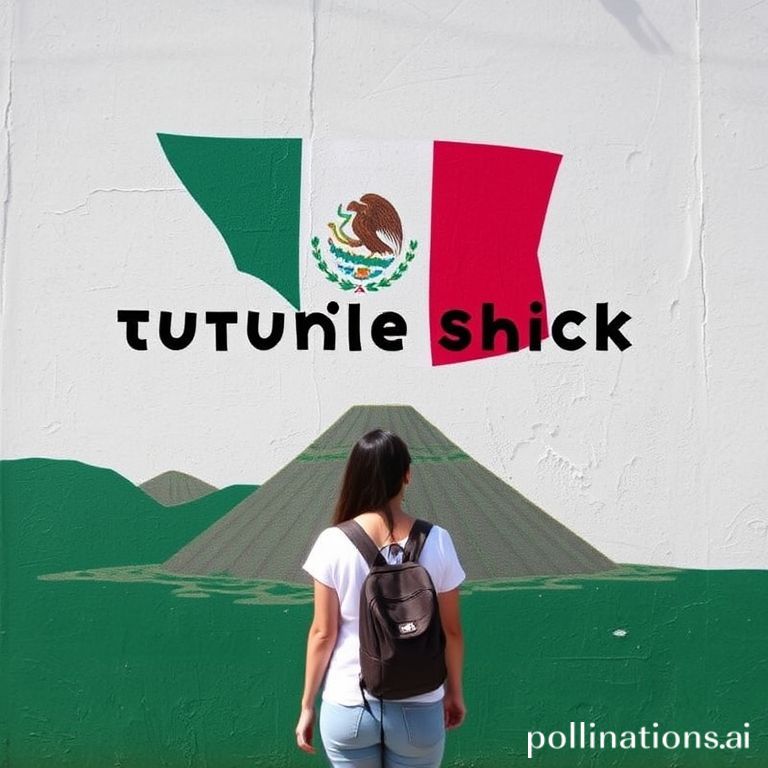Moving to a new country is an exciting adventure, filled with the promise of new experiences and perspectives. Mexico, with its vibrant culture, delicious food, and welcoming people, is a popular destination for expats and travelers alike. However, even the most enthusiastic newcomers can experience culture shock – a feeling of disorientation and unease that arises from encountering unfamiliar customs, values, and social norms. Understanding and preparing for culture shock is key to a smooth and fulfilling transition to life in Mexico.
Culture shock isn’t a sign of weakness or failure; it’s a natural response to being immersed in a completely different environment. The good news is that it’s temporary and manageable. By recognizing the symptoms and employing effective coping strategies, you can navigate the challenges and fully embrace the richness of Mexican culture.
Understanding the Stages of Culture Shock
Culture shock typically unfolds in several distinct stages. Being aware of these stages can help you anticipate and address the emotional and psychological challenges that may arise.
The Honeymoon Phase
This initial stage is characterized by excitement, enthusiasm, and a sense of wonder. Everything seems new and fascinating, and you’re likely to focus on the positive aspects of your new surroundings. You might be eager to explore, learn the language, and connect with locals. This phase can last for several weeks or even months.
The Frustration Phase
As the novelty wears off, the challenges of daily life begin to surface. Language barriers, bureaucratic hurdles, and unfamiliar social customs can lead to frustration, irritability, and a sense of isolation. You might find yourself comparing Mexico unfavorably to your home country and feeling overwhelmed by the differences.
The Adjustment Phase
Gradually, you begin to adapt to your new environment. You start to understand the nuances of Mexican culture, develop coping strategies, and build a support network. Language skills improve, and you become more comfortable navigating daily life. This phase marks a turning point towards greater acceptance and integration.
The Acceptance Phase
In this final stage, you’ve come to terms with the differences between your home culture and Mexican culture. You appreciate the unique aspects of both and are able to function effectively and comfortably in your new environment. You may even feel a sense of belonging and develop a strong connection to Mexico.
Practical Tips for Overcoming Culture Shock
While the stages of culture shock are fairly predictable, the intensity and duration can vary significantly from person to person. Here are some practical tips to help you navigate the challenges and accelerate your adjustment to life in Mexico:
- Learn the Language: Even basic Spanish skills can make a huge difference in your ability to communicate and connect with locals. Take classes, use language learning apps, or find a language exchange partner.
- Embrace the Culture: Immerse yourself in Mexican culture by attending local festivals, trying new foods, and learning about the history and traditions. Be open-minded and respectful of cultural differences.
- Build a Support Network: Connect with other expats or locals who can offer advice, support, and friendship. Join social groups, attend community events, or volunteer for a local organization.
- Stay Connected to Home: Maintain relationships with friends and family back home through regular phone calls, video chats, or social media. This can provide a sense of comfort and familiarity during times of transition.
- Take Care of Yourself: Prioritize your physical and mental well-being by eating healthy foods, getting regular exercise, and practicing relaxation techniques. Make time for activities you enjoy and that help you de-stress.
- Be Patient and Flexible: Adjusting to a new culture takes time and effort. Be patient with yourself and others, and be prepared to adapt to unexpected situations. Remember that things may not always go according to plan.
- Seek Professional Help: If you’re struggling to cope with culture shock, don’t hesitate to seek professional help from a therapist or counselor who specializes in cross-cultural adjustment.
Understanding Cultural Differences
Many aspects of Mexican culture differ significantly from those of Western cultures. Being aware of these differences can help you avoid misunderstandings and navigate social situations more effectively.
- Personal Space: Mexicans tend to stand closer to each other during conversations than people in many Western cultures.
- Time Perception: “Mexican time” is a real thing! Punctuality is often viewed more casually, so be prepared for delays.
- Communication Style: Communication can be more indirect and rely heavily on nonverbal cues. It’s important to pay attention to tone of voice, body language, and context.
- Family Importance: Family plays a central role in Mexican society. Family gatherings are frequent and extended family members are often closely involved in each other’s lives.
Conclusion
Overcoming culture shock in Mexico is a journey that requires patience, understanding, and a willingness to embrace the unknown. By recognizing the stages of culture shock, employing effective coping strategies, and immersing yourself in Mexican culture, you can transform a challenging experience into an opportunity for personal growth and enrichment. Embrace the adventure, stay open-minded, and allow yourself to be changed by the beauty and warmth of Mexico.
If you enjoyed this article, don’t forget to explore more inspiring stories on Life in Mexico!
IMAGE: A warmly lit scene in a vibrant Mexican town square. A smiling expat is conversing with a friendly local vendor at a colorful market stall filled with handcrafted goods. The atmosphere is cheerful and inviting, with soft, golden sunlight filtering through the buildings. Focus on the connection and positive interaction between the two individuals, emphasizing the overcoming of cultural barriers. The style should be realistic and evocative.


